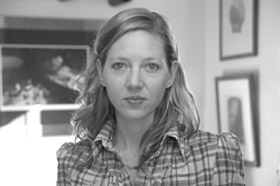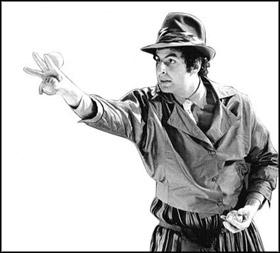 Can you describe your creative process?
Can you describe your creative process?
I have few to no patterns, and even less dogma about how to write, or how I write. Poetry tends to come to me naturally or not at all. I spent years trying out different exercises and forms like most everyone, but the truth is that I don’t do that anymore. It may sound mystical or retro or simply depressing, but I increasingly feel myself to be a hostage to poetic impulse. I usually have to wait until a poem comes along, or until I see what’s there to be written, as Robert Creeley once put it. For me a poem often begins as a constellation of words coursing through my head like little electric shocks. This often happens when I’m in great pain or pleasure, doing laps in a pool, or in the bardo between sleeping and waking. I don’t know why. The words feel like irritants in the soft lap of an oyster, as Henry James had it. Then the pearl — if one could call it that with a straight face — starts to congeal around the irritant. A snowball in the muck.
As for non-poetry projects, that’s a different story. Usually I do a lot of reading or research until something takes possession of me. I think of research like throwing lots of crap in a cauldron — bones, feathers, blood, everything — and turning up the heat: eventually it has to come to a boil. (Whether you make something edible is a different question.) Or, let me put it this way: Often a baby in a subway station will scream back at a loud train hurtling through. If you send a train of information hurtling through your brain often and fast enough, and if the train screeches loudly enough, you may eventually find yourself yelling back.
Are there any techniques that you use to spark new poems or gather up ideas?
I don’t use any techniques per se…but I take a lot of notes, wandering around in the world. I used to keep diaries, then legal pads; now I don’t know what I keep. Scraps, I guess. I tend to write a poetry based on fact and feeling, or the fact of feeling, or the feeling of fact, etc., which mostly means I write down “facts” — observed things that interest me in the world — and, alongside, my feelings (loosely defined). Painter Joan Mitchell once described her gargantuan abstract paintings as “remembered landscapes which involve my feelings”; I think of my poems similarly, though I usually try to write from within the landscape rather than from my memory of it — to avoid nostalgia, or bad faith. Two sections of my next book of poems, Something Bright, Then Holes, bear this out literally: The first section, “The Canal Diaries,” was written in a single notebook at the shore of the Gowanus Canal in Brooklyn; the second, “The Hospital for Special Care,” was written at a friend’s bedside in a hospital by that name. I like site-specific projects. Maybe because if I plunk myself down in a place with a pen, I rarely find myself bored.
